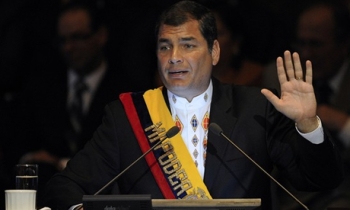The Arabic Network for Human Rights Information (ANHRI) has expressed great concern over the trial of the Omani journalist and internet activist Ali al-Zwaidi who allegedly violated article 61 of the Omani communications law. The crime carries a sentence of up to a year in prison and a fine of one thousand Omani riyals (approx US$2,600).
In August 2008, al-Zwaidi, a supervisor of the discussion forum "Sablat Oman," allowed the publication of an article dealing with suspicions of corruption in the Omani telecommunications company Omantel, based on a complaint filed by the executive manager of the company Mohammed Bin Ali al-Wuhaibi.
While officials in the forum removed the article because he signed "from anonymous writer," al-Zwaidi was interrogated in August 2008 by the prosecution. Al-Zwaidi and other internet activists thought it was over until he was arraigned on February 24. The trial has been postponed until March 17.
Article 61 of the Omani telecommunications law, amended in 2008, stipulates that: "is punished by prison for more than one year, and fined with no more than 1000 Omani riyals, or with either one of them: Anyone who uses a system on a device or a means of communication to direct a message while knowing it is untrue or causes harm to a person or a service"
ANHRI said it is evident that the case is a settlement of accounts and a punishment for al-Zwaidi who kept expressing his opinion and criticising the government and the telecommunication sector about which many internet activists complain of bad service.
Al-Zwaidi has written for many Omani newspapers since1986, including Oman, al-Watan journals and al-Omaniah magazine. In addition, he is a veteran internet activist, especially in forums visited by many internet activists in Oman as an available widespread means for expression and in blogs which are rising in number.
ANHRI said the Omani authorities should have investigated the contents of the article in question, along with topics which internet activists keep writing in criticism of Omantel. Freedom of expression means accepting and discussing criticisms instead of punishing critics, ANHRI added.









